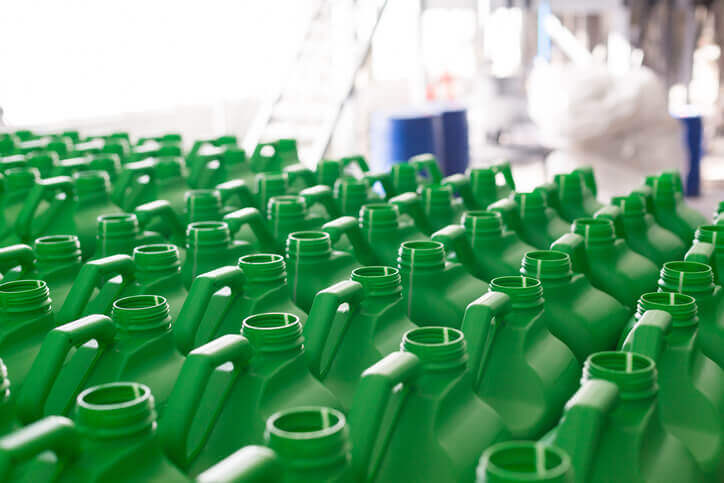Breaking Down the Toll Manufacturing Services Process
Toll manufacturing services play a crucial role in various industries, providing businesses with the flexibility and expertise needed to bring their products to market. Understanding the intricacies of this process is essential for successful collaborations and high-quality outcomes.
Toll manufacturing refers to the outsourcing of production to a third-party partner. Rather than investing in facilities and equipment, companies can leverage the expertise of toll manufacturing services for their product needs. One company provides the raw materials (or partially completed goods) to a third-party, which then provides the rest of the services — such as blending chemical components into a finished product. The third-party company has specialized expertise and equipment in place, and provides their services for a fee, or toll.
But how exactly does this process work? In this blog, we’ll walk through the typical toll manufacturing workflow from initial consultation to quality assurance. Let’s dive in.
Identifying the Key Players
In any toll manufacturing partnership, clear identification of key players is vital:
- Client — The company looking to acquire manufacturing services.
- Toll Manufacturer — The specialized facility responsible for production.
- Regulatory Bodies — While this is not applicable in every relationship, these organizations ensure compliance with industry production standards and regulations.
The client provides specifications, materials, and funding while retaining ownership of the product and intellectual property. The toll manufacturer supplies production facilities, equipment, personnel, and expertise to fabricate the product to the client’s requirements. Regulators oversee compliance depending on the industry.
Initial Consultation
The process begins with an initial consultation where the client communicates their needs, objectives, and any unique product specifications to the toll manufacturer. The manufacturer assesses their capabilities in terms of capacity, technology, and expertise to determine how well they can fulfill the client’s expectations. Both parties typically sign nondisclosure agreements to protect proprietary information and ensure confidentiality guarding elements like formulas and processes.
Customization and Planning
Once the two principal parties are aligned, the toll manufacturer will formulate a customized production plan that details the necessary materials, equipment, quality checks, staffing, timelines, and costs. Much of the planning in this step will be collaborative. For instance, sourcing raw materials may be dictated by approved suppliers on the client’s side and the toll manufacturer plays a part in procurement logistics based on production batch sizes and their own capacity. With a plan in place and material procurement initiated, both sides need to institute quality control and assurance measures for each stage of production to maintain project quality and consistency.
Production Process
Now, production of the finished product can begin. Manufacturing involves material preparation such as weighing, mixing, heating, grinding or blending — for chemical or fluid products. Once the product is made (or finished) the process continues with packaging, which should adhere to the client’s specifications for appearance, labeling, and function. This step would include the labeling, filling, weighing, adding a closure, boxing and palletizing the product. The toll manufacturer is responsible for overseeing safe product handling and processing while complying with all applicable regulations and standards. Depending on the client’s product requirements, the toll manufacturer may establish and hold regulatory certifications on the client’s behalf.
Quality Assurance
Extensive quality assurance validates that the product consistently meets predetermined criteria. The toll manufacturer performs visual inspections and tests — often at multiple stages from raw materials to finished goods — and in accordance with the decisions made in the customization and planning stage. All equipment and processes are validated to ensure they consistently yield quality output and that every batch meets specifications. Detailed documentation and comprehensive record-keeping of production data provides traceability and demonstrates due diligence.
Work with the Experts in Toll Manufacturing Services
Understanding the intricacies of toll manufacturing services is pivotal for businesses seeking efficient and reliable production solutions. From the initial consultation to the meticulous planning, production processes, and stringent quality assurance measures, every step is vital to the successful outcome of the collaboration.
By partnering with experienced toll manufacturers like Crystal Packaging, businesses can ensure their products are manufactured to the highest standards, meeting the demands of the market and achieving long-term success. Founded in 1977, we’ve honed our processes to ensure you get the highest quality products and service, every time. We also maintain a variety of industry certifications — including GMP, ECOCERT, and Safer Choice Standard accreditations — to hold us to the highest standards in manufacturing. Whether you’re looking for toll blending, contract packaging, or windshield wash production, we’ve got you covered. To date, we’ve produced more than 400 million gallons of product for over 300 satisfied partners, and we’re ready to do the same for you.
Get Started Today
Want to learn more about the toll manufacturing services process, or how we can help you streamline operators and get to market faster? Reach out to our expert team for a no-strings-attached consultation.

